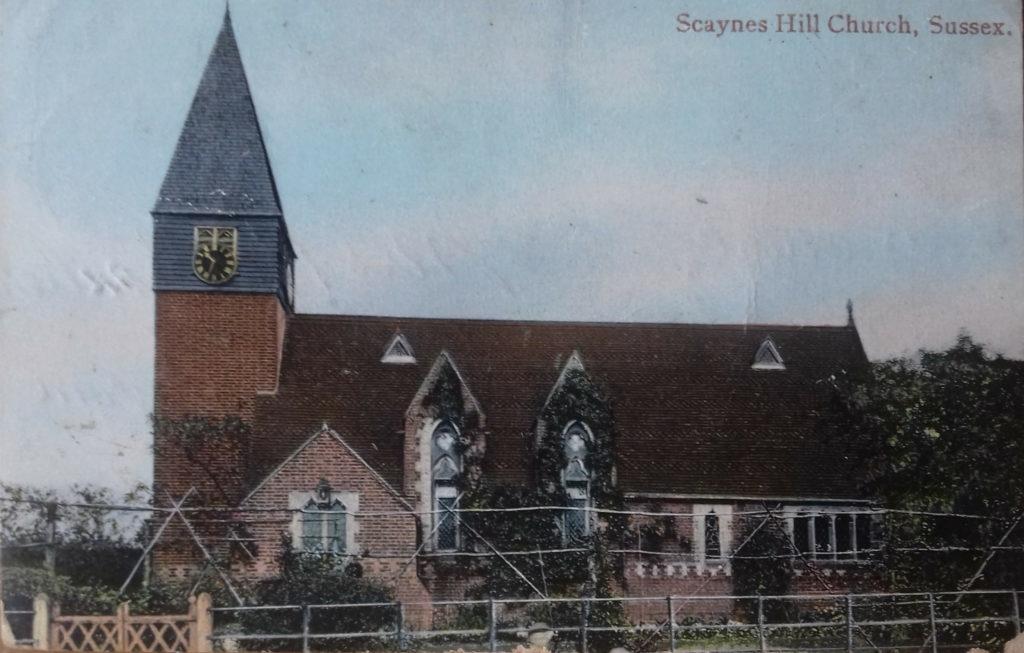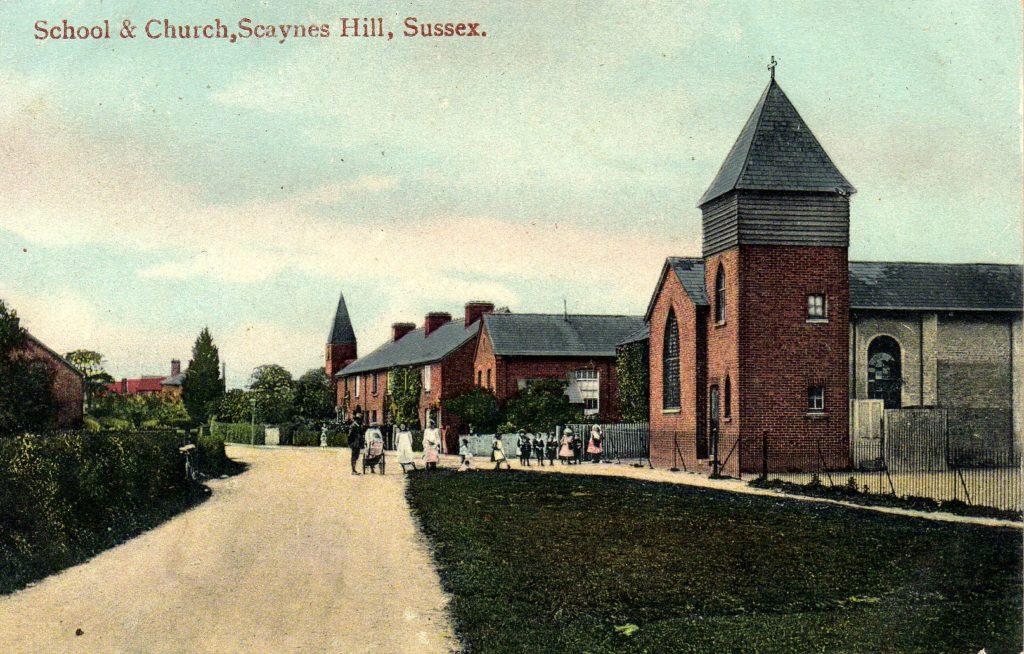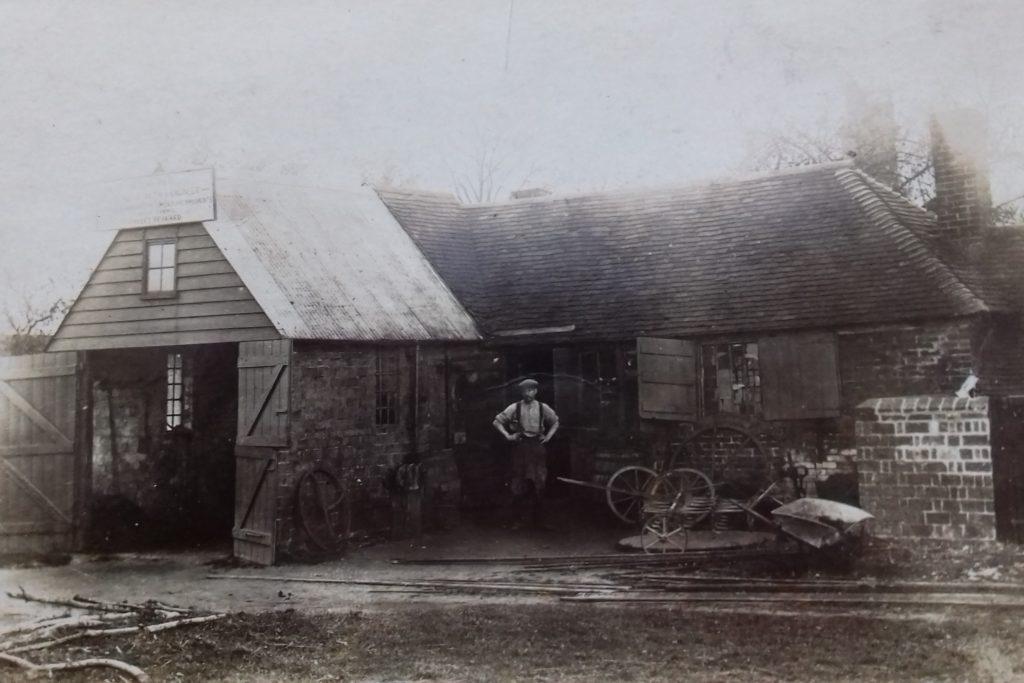Edward Gower (1855 - 1917)
Copied from Newspaper - Account of my Father's Funeral 1917 by Winifred Nora Smith his youngest daughter
The funeral took place on Wednesday of Mr Edward Gower for so many years Verger of St. Augustine’s Church.
The first part of the service was held in the above Church which he so faithfully served, and so much loved. The Vicar, the Rev A.R.Mead officiating. The service was choral, and many members of the Choir were present, the hymns sung were How the Labourers Task is O’er, and Peace Perfect Peace. During the assembling of the Congregation the Organist played Crossing the Bar (Bridge), Angels Ever Bright and Fair (Handel), Oh Rest in the Lord (Mendelsohn). The Internment took place at Walstead Cemetery.

The mourners were as follows:
Mrs Gower, widow, Sergeant CW Gower (son) and Ralph Gower (son). Mr & Mrs Eales (son-in-law and daughter). The Misses Alice, Grace, Adelaide & Winifred Gower (daughters), Mrs Miriam Tingley, sister, Miss Eunice and Miss Dora Tingley (nieces), Mrs Harriet Smith (sister-in-law) and Miss Adelaide Green (not married to Charlie at that date). There were many beautiful floral tributes.
With fondest love from his sorrowing wife and children. With deepest sympathy Mr & Mrs Rydon (who was squire of Scaynes Hill). Rev F & Mrs Willett, Mr & Mrs Deardon (who lived at Cudwells)). Mrs Clark & Mrs Blewes – In affectionate remembrance from Teachers and Children of Scaynes Hill School. With respect & deep sympathy from Mr & Mrs Matthew & friends at the Anchor Inn, from friends C Knight and Len Cross.
Funeral arrangements by AG Burtenshaw. Mrs Gower and family wish to thank their numerous friends for their kindness and sympathy in their sad bereavement.
My father was also Caretaker of School
As regards the Church he kept it clean, rang the church bell, wound the clock, as well as ordinary Verger services, 8:30 in the morning, 11 o’clock service and 6:30 evening service. He lit the boiler in school to have it warm for children, and swept it all out. We children had to do the dusting. Holiday time the school was all scrubbed out.
He also lit the five village street lamps, ran the Anchor Inn Slate club (I had to help with the accounts). He also kept the church garden in front of church – really lovely white lilies and roses, and roses climbing all over church walls, and lawns to be mowed. Then he looked after our back garden, with runner beans, tomatoes and a frame for cucumbers.

An allotment across the road for potatoes. With a fruit garden at back of church, with strawberries, gooseberries, currants and plums. All this in addition to his daily work for a market gardener 5 days a week. We children took it all for granted, but since I grew up I marvel! My mother was kept busy with her brood. We didn’t go hungry with all the veg and fruit. Dad was paid quarterly for his work at the church and school, and mother used to buy unbleached Calico for our drawers and underclothes. Pinafores were bought ready made. All the girls wore them in those days. I don’t know how we would have managed without that quarterly wage, as dad only got £1.00 a week for his work for the market gardener.

Oh, we had two pigs at the top end of the garden. They were fed on stuff called ‘Sharps’, I remember, and all the kitchen peelings were boiled for them. They seemed to thrive alright. Dad used to scratch their backs and talk to them, and we always had pork for Xmas, which was a luxury. Dad was not always a gardener, he was a Black-Smith when he married my mother, and there was a Smithy on the Common when I was very young. But my father suffered with Bronchitis, and doctors said it was the Smithy (we think it was Bronchial Asthma he suffered from) and he must give it up. There were many times he was in bed for a week, no money coming in and it killed him in the end.